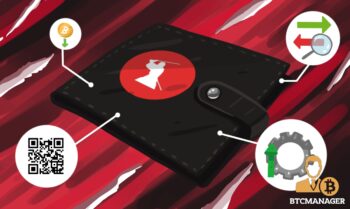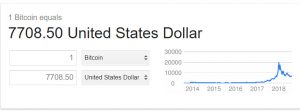2018-10-27 18:33 |
2018 is definitely not the year of the blockchain. While 2017 was a marvelous year that attracted many people to the industry, 2018 is just packed with problems. The tech giant IBM together with the shipping company Maersk is wresting over a new problem at TradeLens, their joint distributed ledger technology platform that is used for supply chains.
The project was started at the beginning of 2018, about 10 months ago, but the partnership from the two companies was only able to entice one carrier company to use the platform: Pacific International Lines (PIL), one of eight shipping lines in Asia and the 17th in volume worldwide. Because of this, neither IBM nor Maersk is happy.
This collaboration needs more carriers to actually succeed in what it was created. The main problem is that Maersk needs other companies to do it and these companies are its competitors, so they are not very eager to be a part of this project, but Maersk stays without “trust anchors” and, as the head of TradeLends, Marvin Erdly, pointed out, they do not have a product to sell without having other carriers.
As these are the rivals of Maersk, it makes sense that they are very concerned with joining a platform that was made by their rival and that they will not have an equal footing there.
Chiefs of CMA CGM and Hapag-Lloyd, which are the 3rd and 5th biggest shipping companies in the world have already publicly dismissed the blockchain technology, so it looks like TradeLends may already be doomed.
While TradeLends has tried to recast the arrangement between IBM and Maersk as a joint collaboration to appear more neutral, the truth is that both companies have equal rights to the IP.
The team of the company is trying to promote equality in the platform, but at the moment, this is not enough to convince other companies that they should stop being rivals and work together. Maersk being in charge means that it is good because they are a really big player but they are also a threat to the other companies and their independence.
It’s All About Independence And OwnershipWhile the idea might have looked good for Maersk it is obviously not that good for all the other companies. Lars Jensen, the CEO of Sea Intelligence Consulting, a shipping analyst company in Copenhagen, has affirmed that companies looked interested when they first heard about the idea but all of them asked about who would retain the IP rights.
As soon as they heard that Maersk would do it, they obviously said no. They are competitors so it does not seem like a great idea to help their biggest rival and it looks like Maersk was somehow oblivious to this fact.
While TradeLends has already started to work together with many global port authorities and customs, this may be a problem. The company is still in its early days and its potential for growth is considerably handicapped if the company is not able to convince the carriers despite how well the company is doing and it is doing quite alright in most of the other aspects. For instance, the company already has more than 100 partners in the ecosystem including the authorities cited before.
The main problem, it seems is that Maersk was greedy. The company did not want to establish its blockchain using the INTTRA rules. This platform, which was started out 20 years ago, is a truly neutral venture instead of being in just the name. By putting its own name at the center of the attention, Maersk may have spoiled its chances for success.
Is It Possible To Stay Really Neutral?Unfortunately for the partnership between TradeLends and IBM, other companies are already starting to look for alternatives. Accenture and American President Lines, the 12th cargo carrier in the world, have already started a project together with AB InBev and an European customs organization.
The main difference is that this platform gives equal rights to everybody. This creates the equal footing that is so necessary to ensure that people will really be onboard the idea of starting the platform.
This new platform is announcing new carriers already and it seems like it may surpass IBM and Maersk’s platform as the carriers have more reasons to be a part of it. According to the people from the platform, one of the core principles that guide the development is that ownership of the platform will not stay with its founding parties, as well as have a governance protocol that is fair for all.
While each platform may have its advantages, it is clear that the carriers will be having a worse deal by getting onboard of Maersk’s platform.
At the moment, the platform has not yet spoken about any chance to change in the future, but surely the idea has passed through the heads of its leaders. While IBM’s Erdly does not speculate on the future, he affirmed that
“We could have spent years and years working on some industry consortium model. Or we could get started and push this thing forward.”
It looks like greed will win against cooperation after all.
origin »Bitcoin price in Telegram @btc_price_every_hour
High Performance Blockchain (HPB) на Currencies.ru
|
|



























